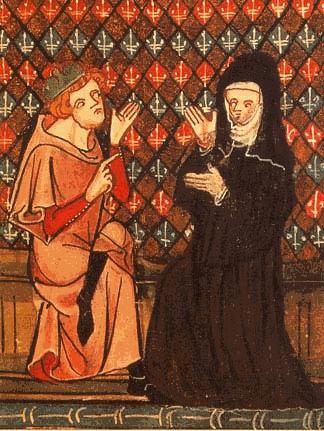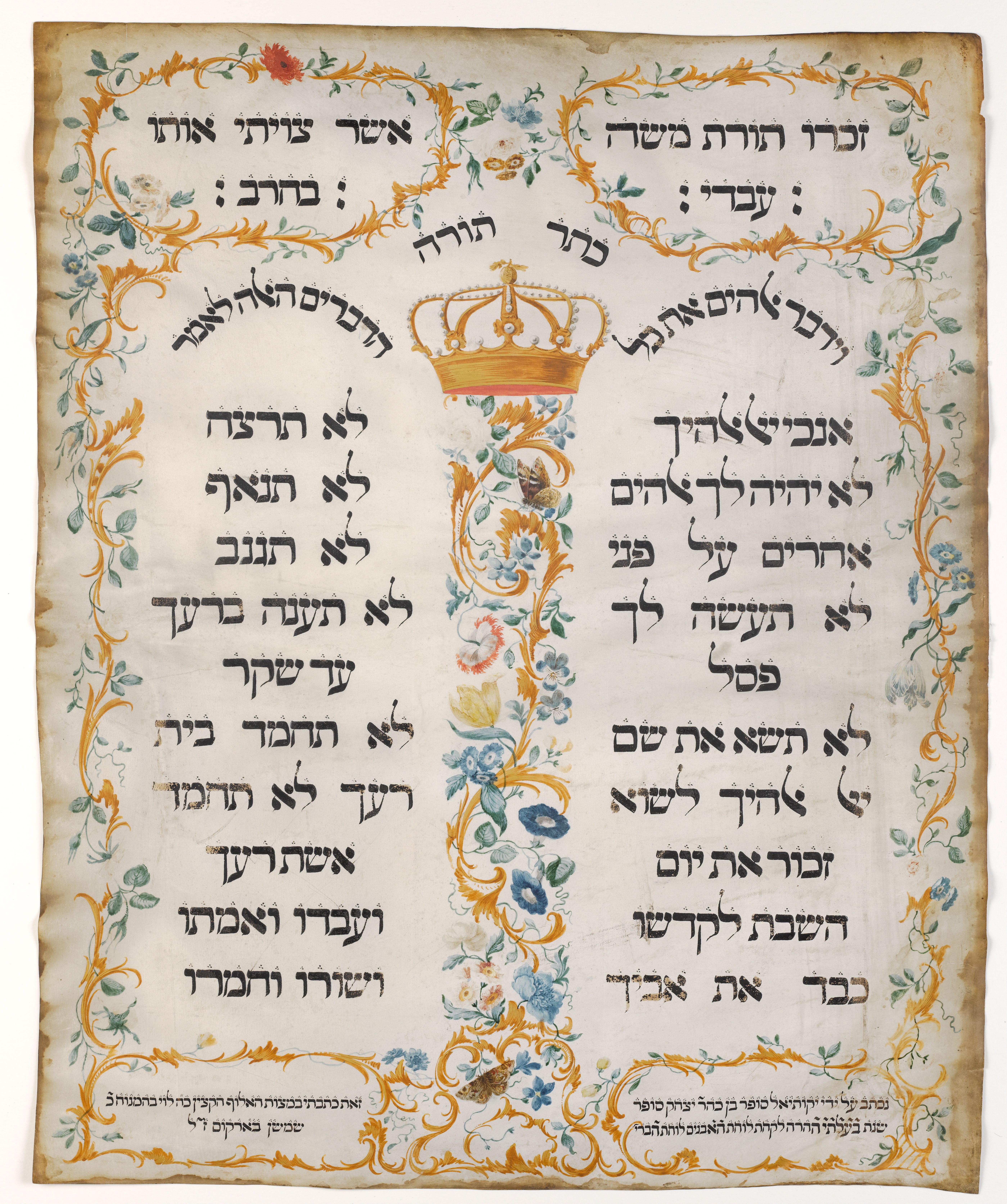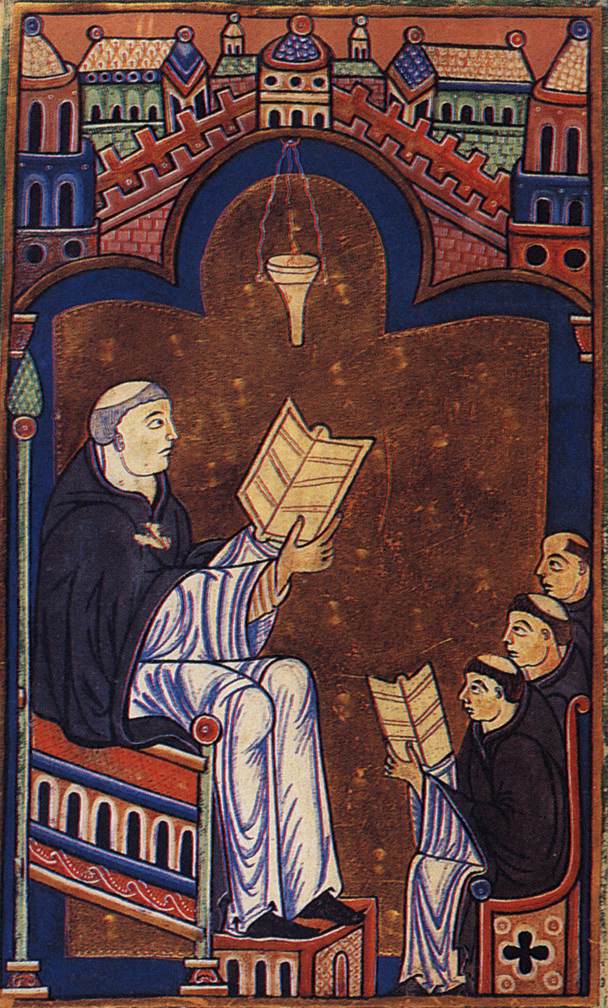|
Scito Te Ipsum
The ''Ethica'' (''Ethics''), also known as ''Scito te ipsum'' (''Know Yourself''), is a twelfth-century philosophical treatise by Peter Abelard. In it, Abelard argues that sin or "scorn for God" is fundamentally a matter of consent, not deeds. Background and publication history Abelard and other medieval philosophers wrestled with the problem of sin. The essential penitentials of Abelard's time implied that both thoughts and actions constituted sin, with the ''Decretum'' by Burchard of Worms going so far as to suggest that planning to commit wrongful acts was indistinguishable from performing them. These penitentials, however, neglected to consider the role of one's intentions or motives. Abelard departs from these prevailing conceptions of sin in the ''Ethica'', which he completed in 1138 or 1139, shortly after finishing a commentary on the Epistle to the Romans. The subtitle of the work, ''Scito te ipsum'', was a "popular motto among monastic writers of the time". Abelard's t ... [...More Info...] [...Related Items...] OR: [Wikipedia] [Google] [Baidu] |
Peter Abelard
Peter Abelard (12 February 1079 – 21 April 1142) was a medieval French scholastic philosopher, leading logician, theologian, teacher, musician, composer, and poet. This source has a detailed description of his philosophical work. In philosophy he is celebrated for his logical solution to the problem of universals via nominalism and conceptualism and his pioneering of intent in ethics. Often referred to as the " Descartes of the twelfth century", he is considered a forerunner of Rousseau, Kant, and Spinoza. He is sometimes credited as a chief forerunner of modern empiricism. In Catholic theology, he is best known for his development of the concept of limbo, and his introduction of the moral influence theory of atonement. He is considered (alongside Augustine) to be the most significant forerunner of the modern self-reflective autobiographer. He paved the way and set the tone for later epistolary novels and celebrity tell-alls with his publicly distributed letter, ' ... [...More Info...] [...Related Items...] OR: [Wikipedia] [Google] [Baidu] |
Ten Commandments
The Ten Commandments (), or the Decalogue (from Latin , from Ancient Greek , ), are religious and ethical directives, structured as a covenant document, that, according to the Hebrew Bible, were given by YHWH to Moses. The text of the Ten Commandments appears in three markedly distinct versions in the Bible: at Exodus , Deuteronomy , and the " Ritual Decalogue" of Exodus . The biblical narrative describes how God revealed the Ten Commandments to the Israelites at Mount Sinai amidst thunder and fire, gave Moses two stone tablets inscribed with the law, which he later broke in anger after witnessing the worship of a golden calf, and then received a second set of tablets to be placed in the Ark of the Covenant. Scholars have proposed a range of dates and contexts for the origins of the Decalogue. “Three main dating schemes have been proposed: (1) it was suggested that the Decalogue was the earliest legal code given at Sinai, with Moses as author, and the Amphictyony con ... [...More Info...] [...Related Items...] OR: [Wikipedia] [Google] [Baidu] |
Thomas Aquinas
Thomas Aquinas ( ; ; – 7 March 1274) was an Italian Dominican Order, Dominican friar and Catholic priest, priest, the foremost Scholasticism, Scholastic thinker, as well as one of the most influential philosophers and theologians in the Western tradition. A Doctor of the Church, he was from the county of Aquino, Italy, Aquino in the Kingdom of Sicily. Thomas was a proponent of natural theology and the father of a school of thought (encompassing both theology and philosophy) known as Thomism. Central to his thought was the doctrine of natural law, which he argued was accessible to Reason, human reason and grounded in the very nature of human beings, providing a basis for understanding individual rights and Moral duty, moral duties. He argued that God is the source of the light of natural reason and the light of faith. He embraced several ideas put forward by Aristotle and attempted to synthesize Aristotelianism, Aristotelian philosophy with the principles of Christianity. A ... [...More Info...] [...Related Items...] OR: [Wikipedia] [Google] [Baidu] |
Richard Of Saint Victor
Richard of Saint Victor (died 10 March 1173) was a Medieval Scottish philosopher and theologian and one of the most influential religious thinkers of his time. A canon regular, he was a prominent Mystical theology, mystical theologian, and was Prior (ecclesiastical), prior of the famous Augustinian Abbey of St. Victor, Paris, Abbey of Saint Victor in Paris from 1162 until his death in 1173. Life Very little is known about the origins and upbringing of Richard of Saint Victor. John of Toulouse wrote a short ''Vita'' of Richard in the seventeenth century. He said that Richard came from Scotland. John added that Richard was received into the Abbey of St Victor by Abbot Gilduin (1114–1155) and was a student under Hugh of St Victor, the most influential of all Victorine teachers (implying that Richard entered the community before Hugh's death in 1141). This account of Richard's early life is not accepted by all modern scholars, however, and some have suggested that Richard entered ... [...More Info...] [...Related Items...] OR: [Wikipedia] [Google] [Baidu] |
Council Of Sens
The Council or Synod of Sens () may refer to any of the following Catholic synods in Sens, France, sometimes recognized as Primate of the Gauls with oversight of the French and German churches: c. 601 Held in 600 or 601, this council condemned simony in conformity with the instructions of Pope St Gregory the Great. St Columbanus refused to attend to prevent the possible enactment of a French resolution of the debate concerning the date of Easter then dividing the Frankish and Breton churches. Other early medieval councils A series of councils were held in 657, 669 or 670, 833, 845 or 846, 850, 852, 853, 862, 980, 986, 996, 1048, 1071, and 1080, mostly concerned with the privileges of the Abbey of St Pierre le Vif. In 1009, Archbishop Leotheric (999–1032) of Sens held a provincial council, attended by King Robert I of France, in which the bulls of the popes in favor of the abbey of Fleury-sur-Loire were burned. Pope Sergius IV was so outraged that he summoned the archbisho ... [...More Info...] [...Related Items...] OR: [Wikipedia] [Google] [Baidu] |
Bernard Of Clairvaux
Bernard of Clairvaux, Cistercians, O.Cist. (; 109020 August 1153), venerated as Saint Bernard, was an abbot, Mysticism, mystic, co-founder of the Knights Templar, and a major leader in the reform of the Benedictines through the nascent Cistercians, Cistercian Order. Bernard was sent to found Clairvaux Abbey only a few years after becoming a monk at Cîteaux Abbey, Cîteaux. In the year 1128, Bernard attended the Council of Troyes (1129), Council of Troyes, at which he traced the outlines of the Rule of the Knights Templar, which soon became an ideal of Christian nobility. On the death of Pope Honorius II in 1130, a schism arose in the church. Bernard was a major proponent of Pope Innocent II, arguing effectively for his legitimacy over the Antipope Anacletus II. The eloquent abbot advocated crusades in general and convinced many to participate in the unsuccessful Second Crusade, notably through a famous sermon at Council of Vézelay, Vézelay (1146). Bernard was canonized just ... [...More Info...] [...Related Items...] OR: [Wikipedia] [Google] [Baidu] |
Penance
Penance is any act or a set of actions done out of contrition for sins committed, as well as an alternative name for the Catholic, Eastern Orthodox, and Oriental Orthodox sacrament of Reconciliation or Confession. The word ''penance'' derives from Old French and -4; we might wonder whether there's a point at which it's appropriate to talk of the beginnings of French, that is, when it wa ... and Latin ''paenitentia'', both of which derive from the same root meaning repentance, a sincere change of heart and feeling of remorse ( contrition). Penance and repentance, similar in their derivation and original sense, have come to represent conflicting views of the essence of repentance, arising from the controversy in the Protestant Reformation as to the respective merits of Faith in Christianity">"faith" and "good works". According to dictionary definitions, the primary meaning of ''penance'' is the deeds done out of ''penitence''. Like the latter, ''repentance'' refers to the gen ... [...More Info...] [...Related Items...] OR: [Wikipedia] [Google] [Baidu] |
Repentance In Christianity
Repentance (a term related to ), in Christianity, refers to being sorrowful for having committed sin and then turning away from sin toward a life of holiness. In certain Christian traditions, such as Catholic theology, Lutheran theology, Orthodox theology and Anglican theology, repentance plays a key role in confession and absolution. It can specifically refer to a stage in Christian salvation in which an individual gains awareness of God's standard, acknowledges their past or present wrongdoings, and deliberately turns away from sin toward God; its numeration as a stage in the '' ordo salutis'' varies with the Christian denomination, with the Reformed theological tradition arguing it occurs after faith. Christian denominations that adhere to the liturgical kalendar, such as Catholicism, Lutheranism, Moravianism and Anglicanism, focus on repentance during the season of Lent, while emphasizing its importance in the life of the believer throughout the year. Origins In the He ... [...More Info...] [...Related Items...] OR: [Wikipedia] [Google] [Baidu] |
Sayings Of Jesus On The Cross
The sayings of Jesus on the cross (sometimes called the Seven Last Words from the Cross) are seven expressions biblically attributed to Jesus during his crucifixion. Traditionally, the brief sayings have been called "words". The seven sayings are gathered from the four canonical gospels. In Matthew and Mark, Jesus cries out to God. In Luke, he forgives his killers, reassures the penitent thief, and commends his spirit to the Father. In John, he speaks to his mother, says he thirsts, and declares the end of his earthly life. This is an example of the Christian approach to the construction of a gospel harmony, in which material from different gospels is combined, producing an account that goes beyond each gospel. Since the 16th century, these sayings have been widely used in sermons on Good Friday, and entire books have been written on theological analysis of them. The Seven Last Words from the Cross are an integral part of the liturgy in the Catholic, Protestant, and other C ... [...More Info...] [...Related Items...] OR: [Wikipedia] [Google] [Baidu] |
Treatise
A treatise is a Formality, formal and systematic written discourse on some subject concerned with investigating or exposing the main principles of the subject and its conclusions."mwod:treatise, Treatise." Merriam-Webster Online Dictionary. Accessed September 12, 2020. A ''monograph'' is a treatise on a specialized topic. Etymology The word "treatise" has its origins in the early 14th century, derived from the Anglo-French term ''tretiz'', which itself comes from the Old French ''traitis'', meaning "treatise" or "account." This Old French term is rooted in the verb ''traitier'', which means "to deal with" or "to set forth in speech or writing". The etymological lineage can be traced further back to the Latin word ''tractatus'', which is a form of the verb ''tractare'', meaning "to handle," "to manage," or "to deal with". The Latin roots suggest a connotation of engaging with or discussing a subject in depth, which aligns with the modern understanding of a treatise as a formal ... [...More Info...] [...Related Items...] OR: [Wikipedia] [Google] [Baidu] |
Deontology
In moral philosophy, deontological ethics or deontology (from Greek language, Greek: and ) is the normative ethics, normative ethical theory that the morality of an action should be based on whether that action itself is right or wrong under a series of rules and principles, rather than based on the consequences of the action. It is sometimes described as duty-, obligation-, or rule-based ethics. Deontological ethics is commonly contrasted to consequentialism, utilitarianism, virtue ethics, and pragmatic ethics. In this terminology, action is more important than the consequences. The term ''deontological'' was first used to describe the current, specialised definition by C. D. Broad in his 1930 book, ''Five Types of Ethical Theory''. Older usage of the term goes back to Jeremy Bentham, who coined it prior to 1816 as a synonym of ''dicastic'' or ''censorial ethics'' (i.e., ethics based on judgement). The more general sense of the word is retained in French language, French, espe ... [...More Info...] [...Related Items...] OR: [Wikipedia] [Google] [Baidu] |
De Libero Arbitrio Voluntatis
''De libero arbitrio voluntatis'' (''On Free Choice of the Will''), often shortened to ''De libero arbitrio'', is a book by Augustine of Hippo which seeks to resolve the problem of evil in Christianity by asserting that free will is the cause of all suffering. The first of its three volumes was completed in 388; the second and third were written between 391 and 395. The work is structured as a dialogue between Augustine and his companion Evodius; it ranges over several topics, and includes an attempted proof of the existence of God. Intended also as a refutation of Manichaeism, ''De libero arbitrio'' denied God's responsibility for sin and emphasised human freedom and accountability. As a result, it became associated with Pelagianism, another doctrine which Augustine considered heretical; he subsequently defended the work by softening its libertarian message. In the 13th century, Thomas Aquinas expanded on the political ideas expressed in this book, and is credited with popularisin ... [...More Info...] [...Related Items...] OR: [Wikipedia] [Google] [Baidu] |






